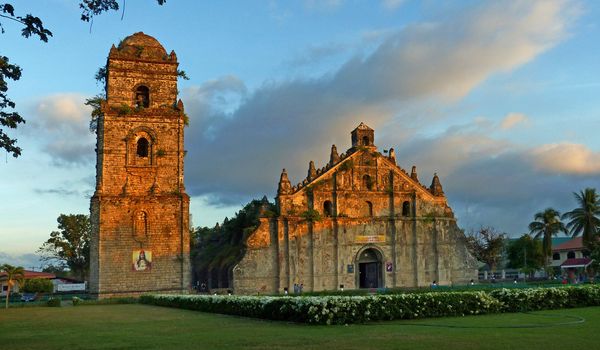When you think of the words 'culture shock', you generally think of when an American visits a foreign country for a first time -- say, maybe if they go to Europe or something -- and everything is completely different from the ways they're accustomed to. It's equivalent to having a bucket of ice-cold water dumped onto your head, and suddenly, you're seeing things in an entirely different light.
Culture shock doesn't necessarily have to apply to changes in country. They can apply to different regions of the same piece of land. People drive differently, interact differently, even handle situations differently from different parts of the country. I, who before this had never ventured further west than Chicago, recently found myself on a cross-country trip to Los Angeles, California.
Exchanging one sunny area for another wasn't the hard part. Not even changing time zones was terribly hard (not to say that it wasn't -- there's something odd about texting all of your friends and them being three hours ahead of you). As an urban area that I felt had a similar attitude to Boston and New York, my two most familiar cities, I thought the feel of LA would be about the same. Oh, man, was I wrong.
One of the first things that I figured out the door was that Californians drove so much differently than New Englanders did. To begin with, highways around here were called freeways -- and they played host to only three lanes, but five or six. Talk about wide. Changing lanes already made me nervous; watching my dad do so gave me heightened anxiety.
(Also, Californians apparently don't drive using their blinkers. At least it's something they have in common with Massholes.)
All Californians drive like they have a death wish. I'd be going down the right side of the highway and suddenly see a whole row of cars speeding past me in the next two lanes like no one cared about the speed limits or if they lived or not. Why do they do that? I asked one of my friends, born and bred California raised and recently moved to LA. "We drive fast when we can," she laughed at me. "Because every other time, we're stuck in traffic!"
Roads in California are a mystery as well. Never had I driven in such grid-like lines before, and every time we needed to turn somewhere, it meant that there was a sharp turn onto the next intersection, often .3 seconds after the GPS told us to. The Jesus Handle and I got oddly familiar during the trip. My dad got a kick out of what he called 'carving road' -- probably why my acquaintance with the Jesus Handle was so close.
Despite the amount of fast driving they seemed to do, my friend was right: the only other thing Californian drivers are notorious for is getting stuck and traffic. I thought traffic in Boston was bad. Get stuck bumper to bumper for a few miles, sure. Takes a couple of minutes out of your day, but no biggie. Traffic in California means getting stuck bumper to bumper for a whole heck of a lot of miles. It comes from everywhere: the onramps, the offramps, even when you're trying to switch lanes. Some people have a nine-to-five job where getting stuck in traffic is part of what they do.
People are much nicer on this side of the country, too. Baristas tend to greet you more casually, with a "what's up?" rather than a "how can I help you?". (As a barista, I can confirm that "what's up" is only reserved for either your relatives, your friends, or younger regulars coming into the shop.)
They're extremely friendly -- they've somehow mastered the act of being overly nice without being annoying. Everyone needs to learn their customer service tips from Californians. I also don't think I've ever heard less honking in city driving. It's almost if everyone understands that yes, we're all trying to get somewhere and yes, we're all going to try and get there driving maniacally.
Perhaps one of the biggest surprises is that buildings are so spread out. Boston and New York are covered in skyscrapers. Tall buildings abound and are squished impossibly close together. For someone to have an acre of land was almost unheard of. California is basically if someone rolled those cities up into a ball and squished it out flat in the palm of their hand. There are several clumps of skyscrapers rather than just one, and if you stand in the exact right place, you can see more than one clump at once.
There's no such thing as a building that exists over ten stories tall unless it's a glorified hotel or apartment building, and everything's made of starch-white adobe or material that's most certainly not wood or brick. Having everything be so small and spread out was truly one of the most mystifying things.
Final verdict? I'm intrigued. California's a state I could get behind -- Los Angeles, specifically -- but I think it'd take a long time for me to get over the culture shock.



















